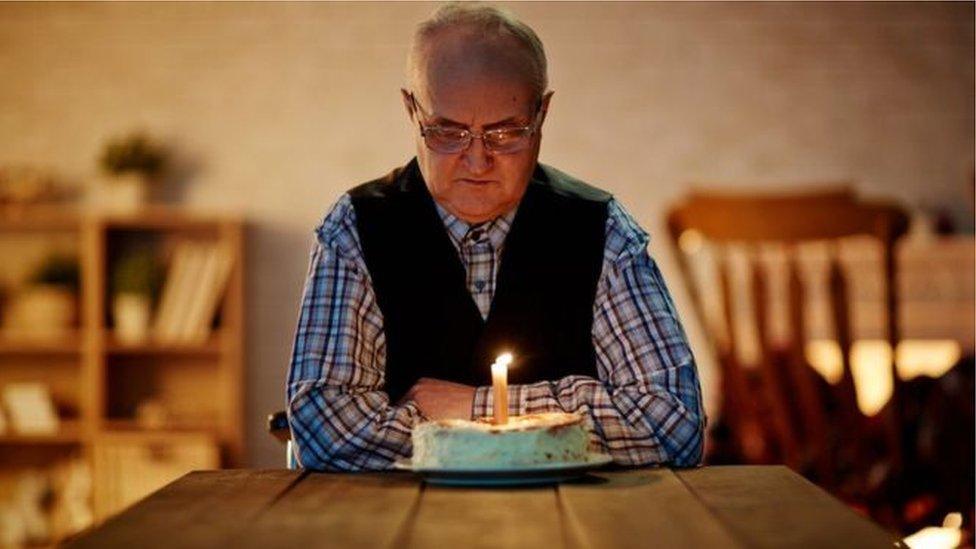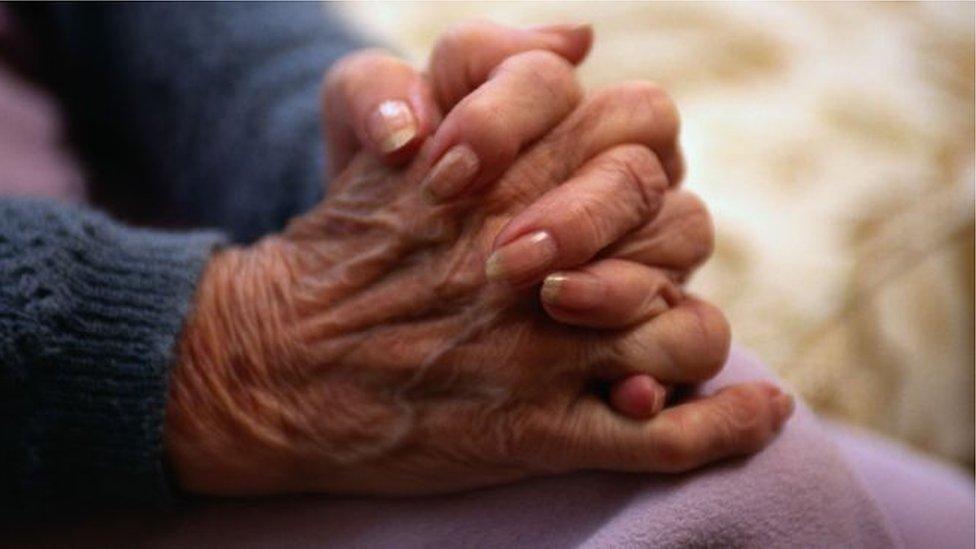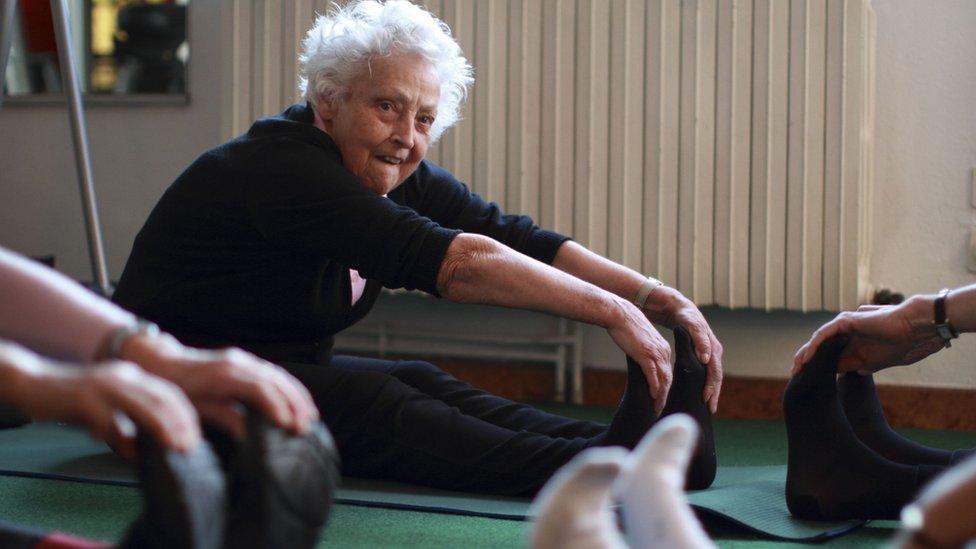Wales 'facing loneliness epidemic' among elderly
- Published

Wales will face a "loneliness epidemic" among elderly people unless local authorities take action, a charity has said.
Age Cymru said isolation was a daily reality, with 75,000 older people "always or often" lonely.
It called for a "national conversation" on the issue.
The Welsh Local Government Association (WLGA) said "reduced budgets have placed increasing pressure" on services.
Age Cymru warned the impact of dealing with the physical and mental health effects of loneliness was taking its toll on council and health services.
'Suicide link'
The charity's chief executive Ian Thomas said the causes of elderly isolation and loneliness should be addressed "as a national public health priority".
He said: "There are many reasons why older people can become isolated - such as poor transport; an inaccessible built environment in our towns and cities, and a lack of local amenities and facilities, including public toilets.
"And while the effects of this isolation may not be immediately obvious, being lonely can increase the risk of high blood-pressure and cardiovascular disease and, most-worryingly, there is a proven link between loneliness, depression and suicide."
He said the situation will "continue to get worse" and there will be a "national isolation epidemic" in Wales unless steps are taken.
About 20% of Wales' more than three million people are aged over 65, according to the latest official figures, external.
Age Cymru has launched a campaign urging Welsh local authorities to:
Create safe, accessible built environments with places to meet which are easily accessible by integrated local public and community transport
Involve older people in identifying and developing solutions to isolation
Work with housing, transport, health, care, voluntary sector organisations and GPs to deliver practical and emotional help to tackle loneliness
Provide services which prevent or manage loneliness and isolation at key stages, such as times of bereavement
Agree specific local actions to reduce loneliness and monitor and evaluate their impact


'I have no friends'
Gill Stafford, 68, is a retired health information and IT officer.
She moved to from Chirk to Abergele, Conwy county, after her husband died two years ago.
Mrs Stafford lives with her 30-year-old son who, has cerebral palsy and uses a wheelchair, and prefers life in Abergele.
"At least here in Abergele, people are friendlier and a walk in the park means I meet and greet several people who reply back," she said.
"However, my social situation still means I experience loneliness as I have no friends or relations within several hours' journey."
She said Christmases were "extremely lonely".
Her son plays boccia - a sport similar to bowls which was originally designed for people with cerebral palsy - and she runs the local club.
Mrs Stafford said it had "really helped" with her overall health and wellbeing."

In December, a British Red Cross study identified four areas across Wales where people suffering from loneliness need more support.
One project that attempts to tackle loneliness among the elderly community involves people living at Awel y Coleg in Bala, Gwynedd.
It sees school pupils from years 4, 5, 6 and 7 enjoying music sessions with older people in their 70s, 80s and 90s.
The WLGA said there was a "growing recognition" that loneliness was a "serious problem, with far-reaching implications".
A WLGA spokesman said: "The benefits of preventative and early intervention services are widely known, and local government shares the view of the importance of preventative council services and appreciate that these make a vital contribution to reducing pressure on other public services in Wales, such as the NHS.
"However, reduced budgets have placed increasing pressure on the availability of such services with many authorities having to take difficult decisions about prioritising different kinds of services."
- Published8 December 2016

- Published28 February 2017

- Published19 January 2017
